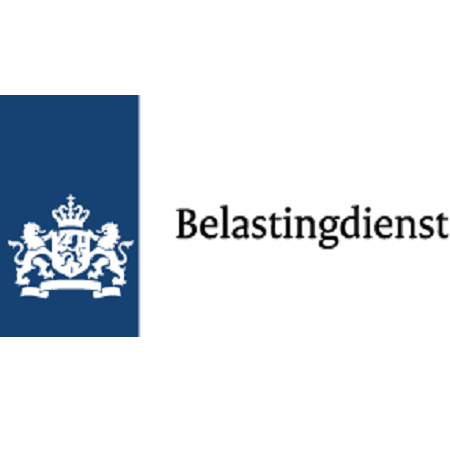The Dutch Government Organizations and Institutions You Need to Know About

If you’re looking to do business in the Netherlands, it’s important that you know about the different organizations and institutions that will be involved. In this article, we’ll introduce you to the most important ones, among others the notary, KvK (chamber of commerce), Belastingdienst, UWV, gemeente, Rijksdienst voor ondernemend Nederland (RVO), and Regionale Ontwikkelingsmaatschappijen (ROM). We’ll give you a brief overview of what each organization does and how they can help your business.
IND – visa, residency and work permit application
First of all, you do not need to be Dutch or even be a resident in the Netherlands to start a business here. However, in many cases we see that a founder wants to move to the Netherlands and become a resident (or even a citizen). EU and EEA citizens can freely live and work in the Netherlands. For all others, additional paperwork is needed.
In that case the most useful tool you can use is the English website of the Dutch immigration services (IND). Here you can simply fill out the form and you will see what rules and requirements apply in your case.
We can help you with some of these visa application services. Visit our pricing and services page for more information.
KvK – business register
The KvK (Chamber of Commerce) is the Dutch business register. All businesses in the Netherlands must be registered here, including foreign businesses operating in the Netherlands. The KvK keeps track of all businesses and their owners, and provides information to the public about companies. They also offer a range of services to businesses, such as some low-threshold business advice. If you’re starting a business in the Netherlands, you’ll need to register with the KvK. In case of a sole proprietorship, you can register directly at the KvK and pay them a small registration fee. If you are setting up a limited company (BV) you should incorporate the company at the public notary prior to KvK registration. In this guide you can find everything about registering your business at the KvK.
Notary public – incorporating or changing a BV
The notary public is a very important figure when doing business in the Netherlands. In fact, the notary is responsible for incorporating companies (including limited companies or BVs) and for changing the articles of association of a company. He or she is also responsible for drawing up and registering deeds and other legal documents. If you’re doing business in the Netherlands, it’s important to work with a notary who is familiar with Dutch law and who can help you with all your legal needs. Get started with incorporating a Dutch BV here.
Belastingdienst – tax authority
The Belastingdienst (tax authority) is responsible for taxation in the Netherlands. This includes income tax, value-added tax (VAT), and other taxes. Businesses that are new in the Netherlands must register for VAT at the Belastingdienst. The Belastingdienst offers guidance on taxation and runs a number of campaigns to promote compliance with tax laws. They are also responsible for all issues around import of goods into the Netherlands through their sister organization, the Dutch customs services (douane). An example of this is the registration for an EORI number.
If you’re doing business in the Netherlands, it’s important to familiarize yourself with the tax laws and regulations and the role of the Belastingdienst.
Dutch Banks
In order to comply with the substance requirements, a Dutch company should have its primary bank account in the Netherlands. There are several large commercial banks and a few smaller ones. If you expect taking up business loans, you should consider ING, ABN AMRO or Rabobank. Is the bank account simply to facilitate payments, in that case an online bank like Bunq is also fine. Read our full guide on setting up a Dutch business bank account.
UWV – employment office
The UWV (Employment Office) is responsible for helping people find (and keep) jobs in the Netherlands. They offer a variety of services to job seekers, including help with finding a job, training and education, and financial assistance. They also provide information about Dutch labor law and regulations. If you’re hiring employees in the Netherlands, it’s important to familiarize yourself with the regulations of the UWV.
Gemeente – municipality
The gemeente (municipality) is responsible for local government affairs in the Netherlands. This includes issues such as housing, infrastructure, zoning, and transportation. The gemeente also provides a number of services to residents, such as permits, licenses, and social assistance programs. If you’re doing business in a specific municipality in the Netherlands, it’s important to familiarize yourself with that municipality’s rules and regulations.
If you are personally moving to the Netherlands, you will register at your gemeente. You can find the contact details of your gemeente in this overview.

RVO – Dutch government agency for entrepreneurs
The RVO (Dutch government agency for entrepreneurs) is a government agency that supports entrepreneurs who want to start or grow their business in the Netherlands. They offer a variety of services, including help with finding funding, setting up a company, and exporting goods abroad. They also provide information about Dutch business law and regulations. If you’re starting or running a business in the Netherlands, it’s helpful to be familiar with the services offered by RVO.
ROM – regional development organizations
Regional development organizations (ROM) are organizations that promote economic development in specific regions of the Netherlands. There are a number of ROMs in the Netherlands, each with their own focus area. ROMs offer a variety of services to businesses, including help with finding funding, setting up a company, and exporting goods abroad. They also provide information about Dutch business law and regulations. If you’re doing business in a specific region of the Netherlands, it’s helpful to be familiar with the services offered by your region’s ROM. Read more about the funding opportunities from the ROM’s on this page.
